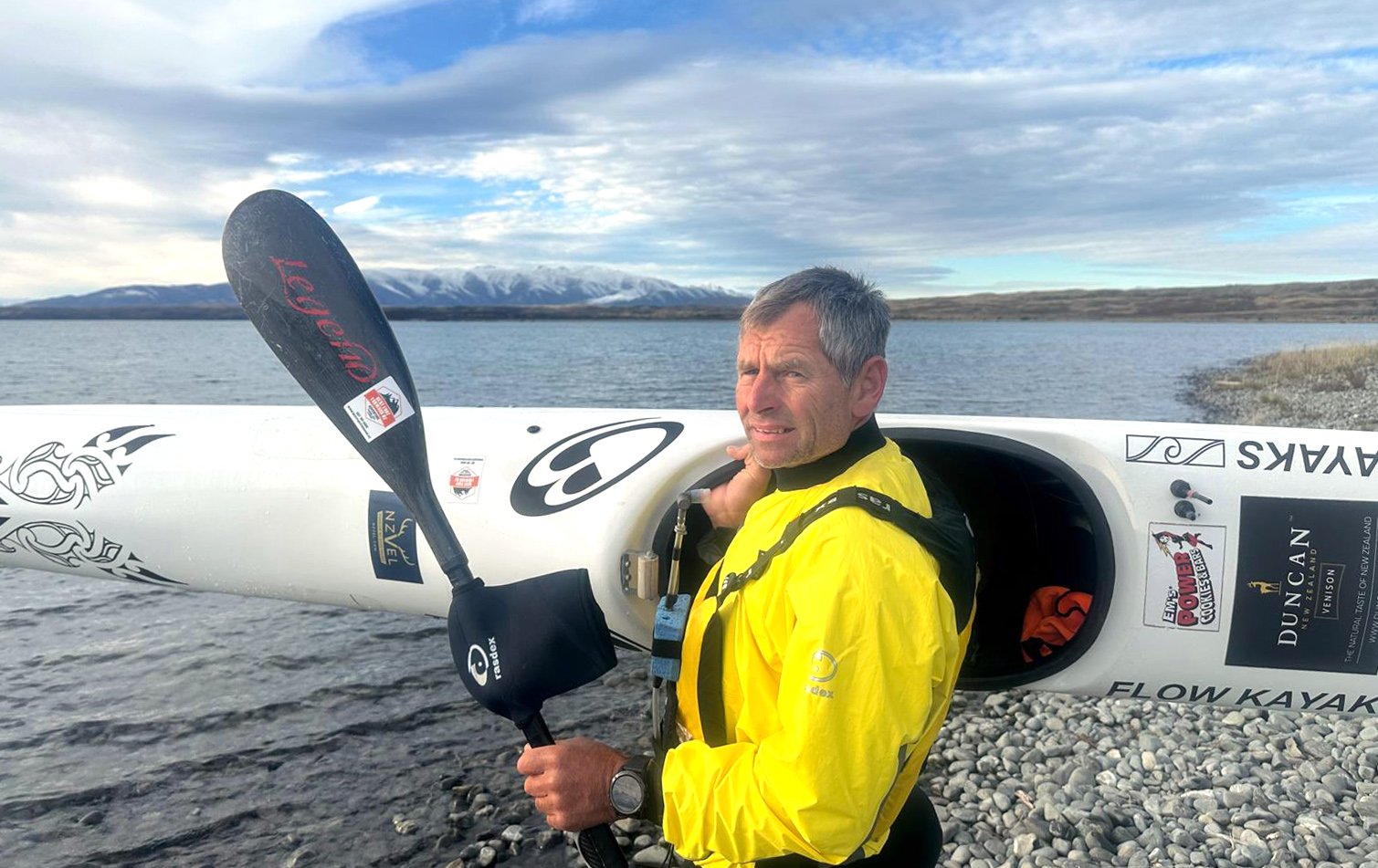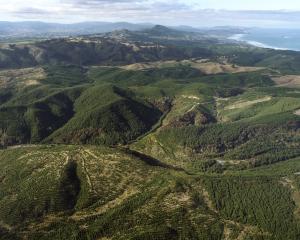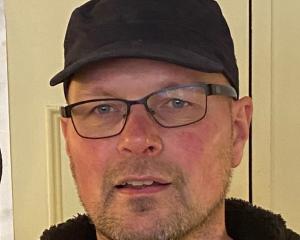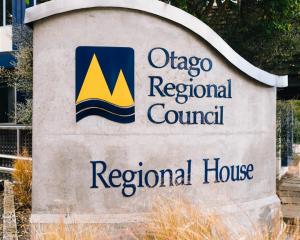
Bob McLachlan is not like most of us.
He is made of different materials.
He’s probably a combination of spider silk and limpet teeth.
But he has his kryptonite.
The 54-year-old adventure racer cannot resist a challenge.
That is how he agreed to paddle 1000 miles (1609km) down the Yukon River from Canada to Alaska.
McLachlan looks at the world through a different lens.
He sees opportunity where others see mostly pain and suffering.
In July, he will join Gordon Townsend, and the pair will compete in the Yukon 1000.
It is the world’s longest canoe race at 1000 miles, the same distance The Proclaimers were happy to walk "to fall down at your door''.
And another fun fact - "more people have been up Everest than have been beyond Dawson City," the website proudly claims.
The slogan for the race is "Push Past Impossible" and "an epic, high-risk adventure" is promised.
That is a lot of red flags but it is catnip for adventure junkies like McLachlan .
He is supposedly retired from serious racing.
But Townsend called and, well ...
"I don’t know what it is about me. I called a friend about it when Gordie asked me to do it, and I was like, ‘Oh, no, I can’t do that’.
"But then it was the intrigue - why would I do a race like that when I could actually go on a nice holiday somewhere, and I was like, I could actually do a race like that.
"So I don't know what it is inside, but I was quite driven to go and give it a crack, and it's a really good challenge.
"And for me, it's that peace and quiet of being away from everything."
They will certainly be away from everything.
It is absolute wilderness.
"All you're thinking about is your race for that whole week. There's nothing else. There's no phone coverage. You can't even get satellite coverage there."
Even for McLachlan, it is at the limits of what is achievable.
He first tackled the Coast to Coast as a teenager, so he has been involved in multisport and adventure racing for nearly 40 years.
His career has featured some stunning highs.
He placed second in the longest day at the Coast to Coast in 2016.
"Big Water Bob" killed the kayak leg to move from seventh to second.
It was a stunning effort and, the following year, he reached a new high at the Cowboy Tough World Adventure Racing Championships in Wyoming.
He was part of a powerful New Zealand team that dominated the 725km race through the Grand Teton National Park from Jackson Hole to Casper.
They raced for just under 80 hours on three and a-half hours of sleep.
He will not get much sleep on the Yukon either.
He will be paddling for 18 hours a day for five or six days in a row.
They have a mandatory six-hour stop every day. In that time they have to set up camp, feed themselves and get what sleep they can.
It is also fairly important not to be eaten by a mother bear.
"Just sitting in a boat for that many hours a day is going to be, you know, right up at the top of those challenges.
"And also just because of the remoteness. There's obviously a lot of wild animals, like bears and moose and things out there, and they all have their young at that time of year.
"Then there's the risk of the elements - wind, smoke, you know, from the wildfires."
Just getting to start is quite an achievement.
There are about 6000 entrants each time and they only accept 30 two-person teams.
"You have to send in a bit of a resume on what you've done in the past. ''And it's not just about kayaking.
"A lot of it's just about survival skills in the back country because help's a long way from anywhere."
New Zealand has a proud record in the race.
New Zealanders Nathan Fa’avae and Sophie Hart won the race last year and the New Zealand crew of Ian Huntsman and Wendy Riach edged fellow Kiwis Simon Woods and Neil Taylor in 2018.
Huntsman and Riach won the 2014 race as well.
"It is a huge adventure.
"We'd love to win and we're definitely going to go for it and hope to do as well as we can. But paddling the entire 18 hours of the day without getting out of your boat each day is our goal.
"And then just to be really efficient in and around the campsite. You only stop for six hours a day, and you want as much sleep in that six hours as you can.
"There's quite a lot to do in that time as well as getting sleep, and it's 24-7 daylight.
"So, yeah, there's a whole lot of elements to it that make it challenging, and weather as well."
They will have to make one other brief stop.
"Once you leave the start line, there's nothing for 1000 miles, really.
"But you do have to stop and make a phone call when you cross the Canada-US border into Alaska.
"You've got to get out, make a phone call, tell them who’s crossing the border.
"There's no-one there, just a phone box, and then you're in Alaska, and you paddle up to just above the Arctic Circle."
You cannot really prepare adequately for an epic adventure on the scale of kayaking the Yukon.
But the pair took on Clutha River recently and got in some hard paddling. They got to try different paddles and they experimented with food.
"You can't afford any dead legs or sore bums, and that's something we can't really test because we have to rent a boat for this race, so we'll have to adjust seats and make it sort of fit us when we get there."
"There’s an element of just staying within a zone of your effort that you can sustain because, if we went at a pace that you would paddle the Coast to Coast race at, you'd only last about a day and then you'd be burnt out.
"So you actually have to taper it back a little bit.
"Your training can be at a higher intensity to develop strength and develop really good technique, and then you take that into a race at a lower intensity, and that's probably our key is not going out too fast and just being very consistent throughout that race.
"You can't train for 18 hours a day because you'd be exhausted if you did. So you've just got to train so that you can do 18 hours a day."
Navigating is another major challenge. It is a huge river and picking the best route is crucial.
"It’s not a white water river by any means, but people fall out. But probably the biggest thing for us is just being able to read the water because the river can get up to 6-7km wide in places.
"Being able to read the maps really accurately is a really important part of the race as well."
Try doing that on four or five hours of sleep.
It would probably be harder than combining spider silk and limpert teeth, two of the strongest natural substances known.
AI says it "is an intriguing idea, but it presents significant scientific and engineering challenges''.
Let’s get McLachlan on it when he gets back from the Yukon.












